New Horror and Sci-Fi Movies Break Out at Fantasia Fest
Montreal’s Fantasia Festival went online this year and delivered the genre goods.

The Fantasia International Film Festival has been serving up fresh and often visionary new voices in sci-fi, horror and other genres for nearly a quarter of a century, and this year’s 24th edition was no different — except, of course, it was all different.
Fantasia, which under normal circumstances physically takes place in Montreal in mid-summer, went online in 2020 for an all-digital edition that kicked off on August 20 and concluded on September 2. The event was a mix of films that were either available on demand at any time throughout the fest (up until a maximum ticket capacity was reached) or were designated to stream “live,” as it were, on one or two certain dates at specific times (also with a maximum ticket capacity).
Although press from around the world was invited to cover the festival, the entire program was geoblocked to Canadian ticket buyers only — which means that as a fan you would have to live in Canada to watch the festival offerings online (this was due to exhibition and distribution restrictions for other parts of the world). In addition, a handful of films — including The Descent director Neil Marshall’s new one, The Reckoning — were available only to a limited list of select guests.
Whether these kinds of restrictions helped or hindered the festival’s transition to an online format remains to be seen. On the other hand, our experience watching films was flawless, with no buffering or other technical problems during a single screening. That aspect of holding a digital festival was handled perfectly.
Less perfect, to be frank, was our personal experience. Being at a film festival or any large event or conference is like being in a bubble where all you do is focus on what you’re there to do; trying to do the same on your couch or at your kitchen table, with all the distractions of home, family, work and other elements of everyday life was way more challenging.
We didn’t watch as many films as we wanted to, but the highlights only proved that Fantasia’s longstanding reputation as a breeding ground for provocative, groundbreaking new talent will stay intact for this year and beyond.

Class Action Park (USA)
Our favorite film of the fest — which you can see right now if you’re lucky enough to have HBO Max — is this wild look back at a New Jersey water/amusement park where there were no rules, anything could happen and the lunatics (i.e. severely underqualified teenagers) were literally running the asylum. It was all fun and games… until it wasn’t, as the injuries, lawsuits and tragic deaths began to pile up.
The documentary delves into the history of the park, which was hatched by the insane/genial Eugene Mulvihill, the unsafe rides that he developed, the crazy atmosphere of the place and the tragedies that brought it down. But like all great docs, Class Action Park is also about an era — a snapshot of a time (the late ‘80s and early ‘90s) when kids were allowed way more freedom than they are now, with results that one could view as both good and bad. It’s a sobering, thoughtful and, yes, hilarious film. (****½)
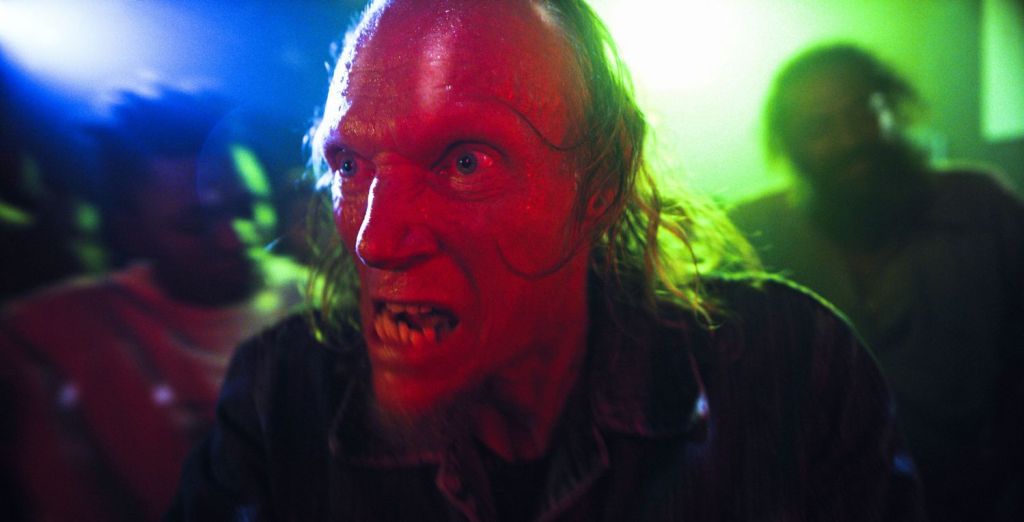
Fried Barry (South Africa)
Think of this as the hard-R version of E.T. A heroin addict named Barry (stuntman Gary Green in an astonishing first-time performance) is airlifted from a Cape Town street into an alien spacecraft, painfully probed and dropped back down — only his body is inhabited by an extra-terrestrial explorer. The next few days are a wild, often gruesome yet oddly poignant journey in which the alien/Barry trips on drugs, dances the night away at a club, is brutally tortured, has sex with multiple women, becomes an instant father, rescues children from a predator and even reconciles with Barry’s own family.
Writer/director Ryan Kruger adapted this from his own short film and, as with several other movies we saw, occasionally has trouble stretching it to feature length. But what could have been a nihilistic mess becomes something alternately funny, shocking and moving, in a story about loss, addiction and love anchored by Green’s fearless performance and Kruger’s gorgeous, stylized direction. (****)

12 Hour Shift (USA)
12 Hour Shift was like a refreshing cool drink after watching some of the darker entries at Fantasia. We haven’t seen Angela Bettis (May) in a few years so she is a welcome and sensational presence as a night nurse in a Texas hospital running a side business in organ harvesting with her supervisor. Chloe Farnworth is equally great as her beyond-dumb cousin who delivers the organs to the gangsters running the black market, while David Arquette shows up as a dim bulb cop-killer who’s stuck in the ER.
Grisly mayhem and gooey twists ensue, and while it’s nothing you haven’t seen before, Bettis’ implacable calm keeps it all grounded and grimly hilarious. Writer/director Brea Grant allows herself a few self-indulgent moments, but overall this is a lot of fun. A faux-bombastic score heightens the humor. Watch for this on October 2 from Magnolia Pictures. (****)
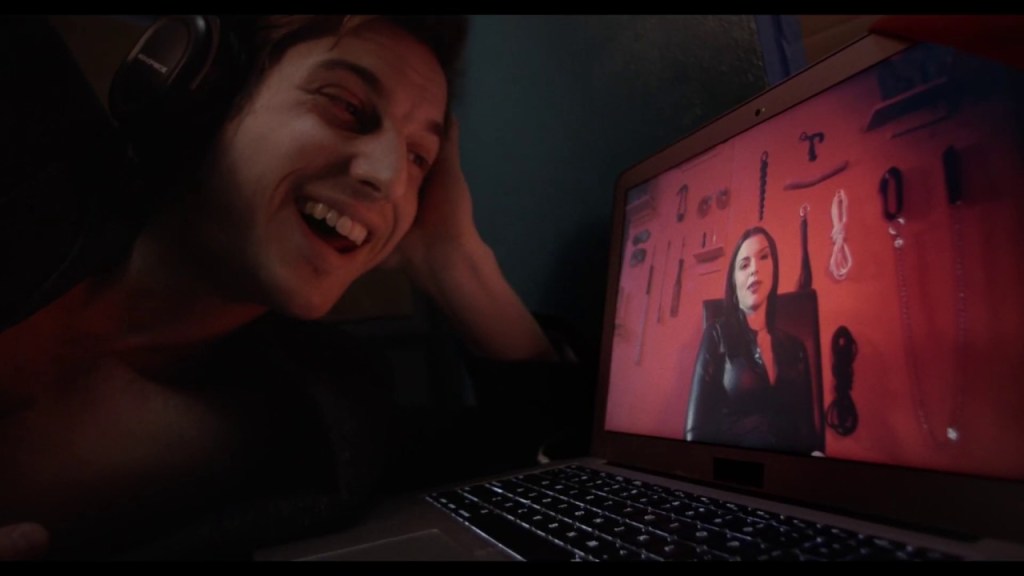
PVT CHAT (USA)
From writer/director Ben Hozie (frontman of the band Bodega), this is a smart, erotic psychodrama about who we think people are and who they really are, against the backdrop of live sex chats and relationships via screen (the latter all too relevant in these shelter-in-place times). Peter Vack is great as Jack, who gambles online by day and spends his winnings at night on those aforementioned chats. His object of desire is cam girl Scarlet (Julia Fox, alluring in what was technically her first role before Uncut Gems), who seems to enjoy her work while tentatively exploring a deeper connection with Jack.
Hozie captures a pre-pandemic lower Manhattan vividly, and while the movie evokes an undercurrent of dread it never resorts to the predictable idea of making Jack a straight-up incel. The plot’s turns are clever and true to the characters, who gradually reveal their vulnerabilities and yearnings. It’s a small film, but it says a lot about love, loneliness and sex in the age of virtual life. (****)
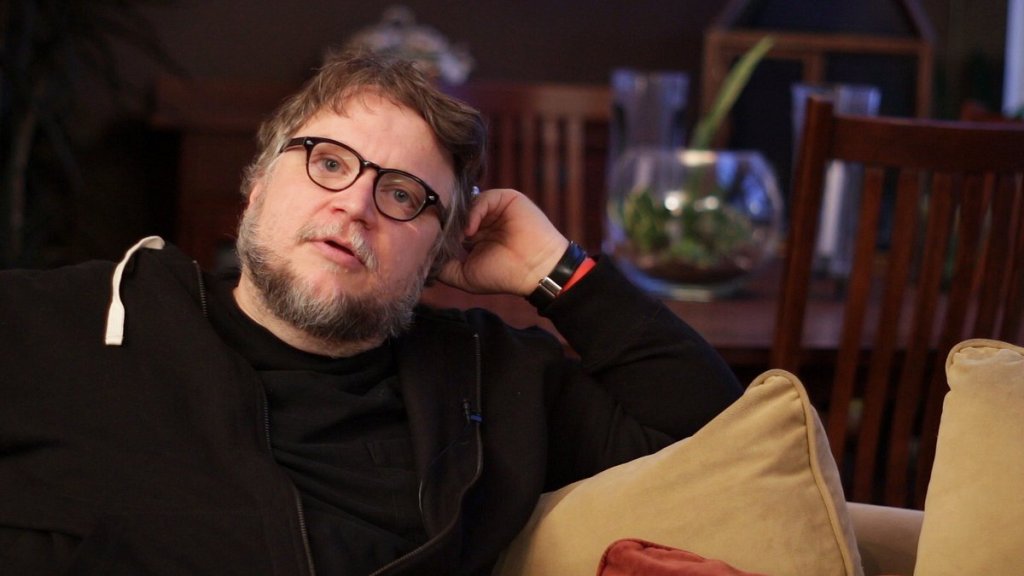
Clapboard Jungle: Surviving the Independent Film Business (Canada)
Justin McConnell is a Canadian filmmaker who has directed two low-budget features but finds it as hard as ever to get a single one of his next potential projects (his “slate,” as he hopefully calls it) financed and produced. This documentary, which McConnell assembled over five years, charts the ups and downs of his quest while offering insight from dozens of artists — including Guillermo Del Toro, the late George A. Romero, Mick Garris (director, 1994’s The Stand), Larry Fessenden (director, Wendigo), John McNaughton (director, Henry: Portrait of a Serial Killer) and others — about the difficulties of independent filmmaking.
McConnell’s saga is a fascinating one and his resiliency in the face of defeat after defeat is at times inspiring. Some of the film plays like a checklist as he tackles various aspects of the business (to his credit, he even offers a clearly late-breaking section on the even more challenging environment facing women and filmmakers of color), but it’s still a worthy guide for anyone who dares to travel this path. (***½)
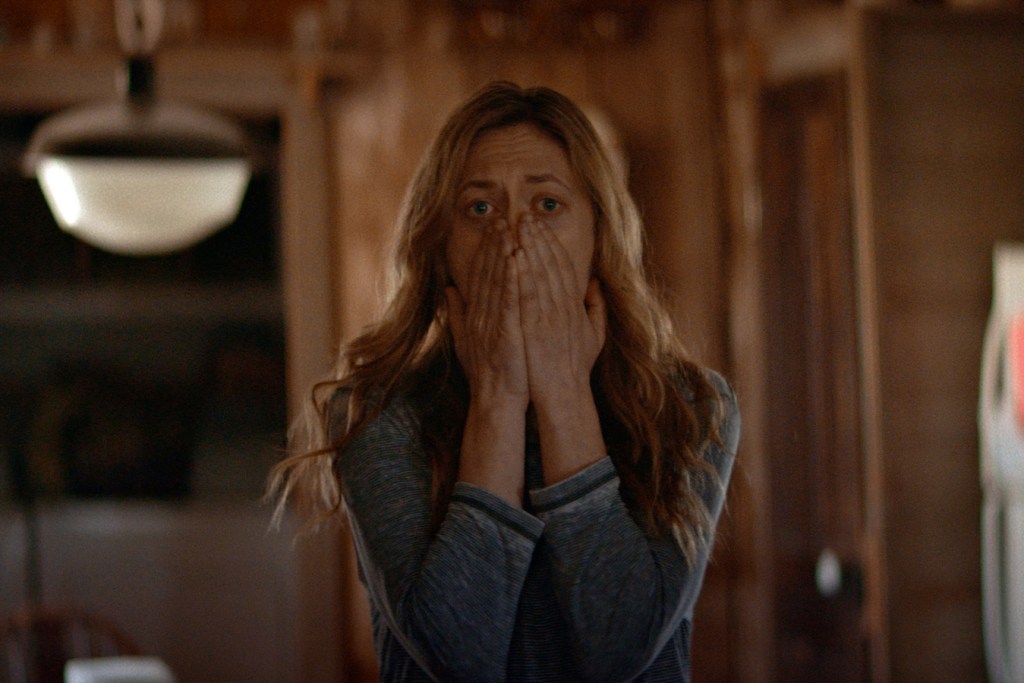
The Dark and the Wicked (USA)
Writer/director Bryan Bertino scared the living hell out of audiences back in 2008 with The Strangers, and while his pictures since then are few and far between and somewhat hard to see, his latest will benefit from a release through Shudder later this year.
In the meantime, we can tell you that Bertino has not lost a step when it comes to crafting utterly skin-freezing imagery and sequences. Siblings Louise (Marin Ireland) and Michael (Michael Abbot Jr.) return to their family’s rural farmhouse to help their mother as their comatose father enters his last days, despite their mother’s entreaties to stay away. Brother and sister learn all too soon that something has come for their family and will not stop.
Bertino works economically with both his direction and script, sketching in just enough about this family to create the necessary empathy and aided greatly by sterling work from Ireland and Abbot. The atmosphere is thick with dread from start to finish, and the images shocking and nightmarish. If The Dark and the Wicked leaves you with a few more questions than you’d like, that’s okay…this is still a genuinely unsettling watch. (***½)
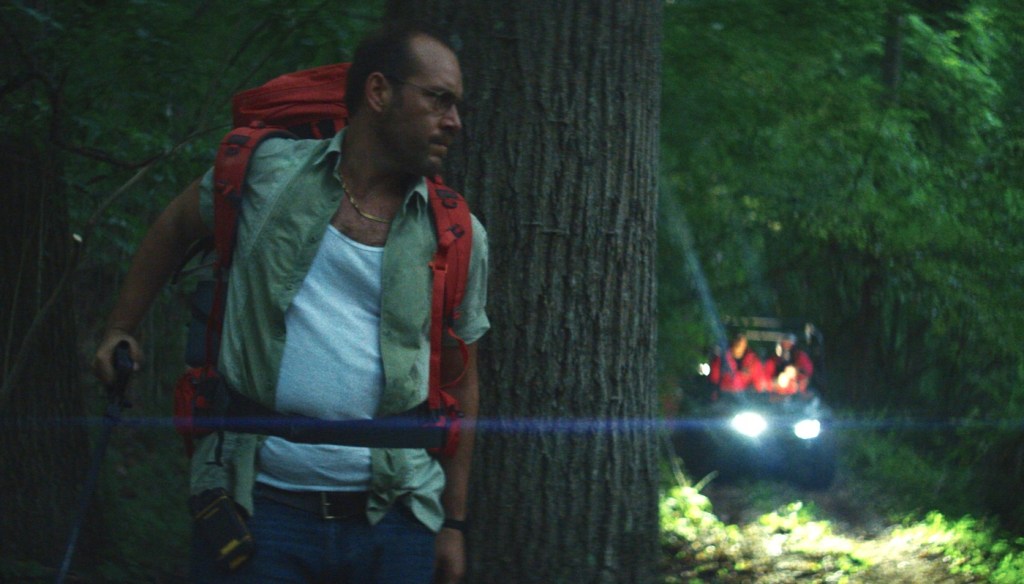
Lapsis (USA)
Filmmaker Noah Hutton — who wrote, directed, edited and composed the score — sets his full-length feature debut in a sort of alternate universe that’s very similar to ours but sitting perhaps a few more minutes in the future. The excellent Dean Imperial (who has a James Gandolfini vibe about him) stars as delivery man Ray Tincelli, whose ailing brother’s mystery ailment forces Ray to join the gig economy. He becomes a “cabler,” one of a growing legion of freelancers who are literally laying cable across miles of rugged terrain for a quantum computing network that will revolutionize the financial markets.
Everything about the company and tech is enigmatic, as are many of the people that Ray meets along the way, and he discovers that the cabling “medallion” or permit he’s purchased may have previously belonged to an unsavory figure. Lapsis uses its subtle sci-fi trappings to tell a tale about real life, with workers fighting for whatever scraps they can get and wealthy oligarchs literally stringing them along. Lapsis is a slow burn, with a final scene that’s a bit of a head-scratcher, but Hutton has crafted a very distinct, pertinent vision. (***½)

Lucky (USA)
Brea Grant also wrote and stars in Lucky, an allegory about a self-help author named May who is stalked — every night — by a masked killer who she keeps mortally injuring yet who keeps reappearing. Reality itself begins to fracture around her as she confronts events from her past and begins to realize what is happening to her and the other women in her life.
Lucky stretches a bit too much to sustain itself effectively over its relatively brief 80 minutes, but this is still a movie with vision and guts from director Natasha Kermani. Its central metaphor for the unending assaults faced by women every day is an unquestionably powerful one, driven home by an extended third act sequence in a parking garage that’s hard to shake. Shudder will stream it at a date TBA. (***)
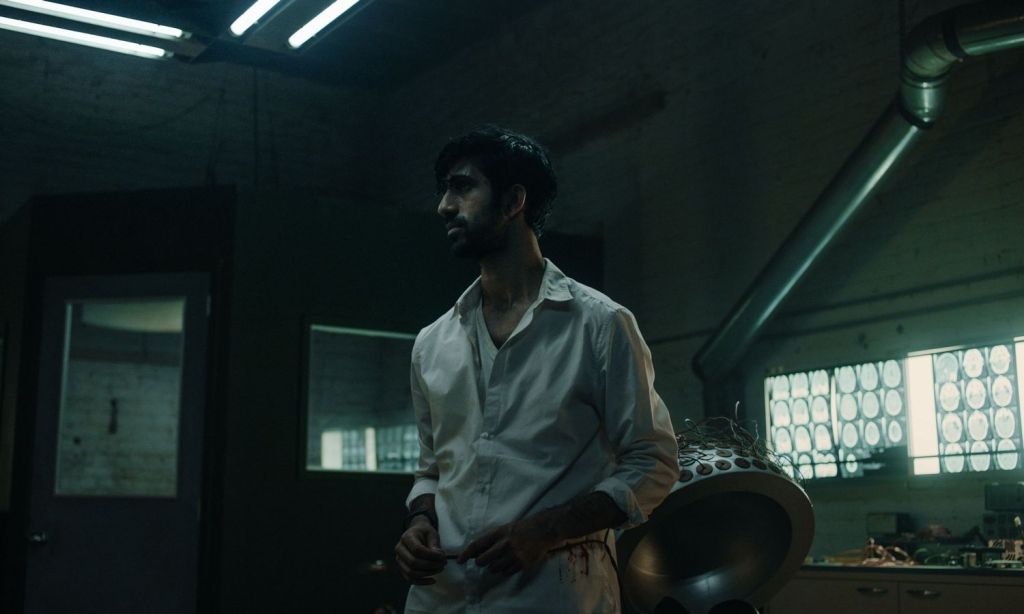
Minor Premise (USA)
This intimate sci-fi thriller is steeped in neurophilosophy — and be warned, there’s a lot to keep up with here. Sathya Sridharan stars as Ethan, a brilliant young scientist who’s obsessed with living up to his father’s legacy while forging his own path. He creates a device that maps out memories and emotions in the brain, but his attempt to try it on himself shatters his psyche into 10 different emotional states, each surfacing for six minutes per hour.
Ethan and his ex-girlfriend (Paton Ashbrook), an ambitious researcher herself, try to piece his mind back together while avoiding the states of rage and psychosis that emerge once every cycle. The repetitive nature of the film and some stylistic choices by director and co-writer Eric Schultz drag its pacing down, but the two main performances are strong and the concept is fascinating and at times frightening. Minor Premise is ambitious and cerebral, if a little too dense, and still an intriguing trip. (***)
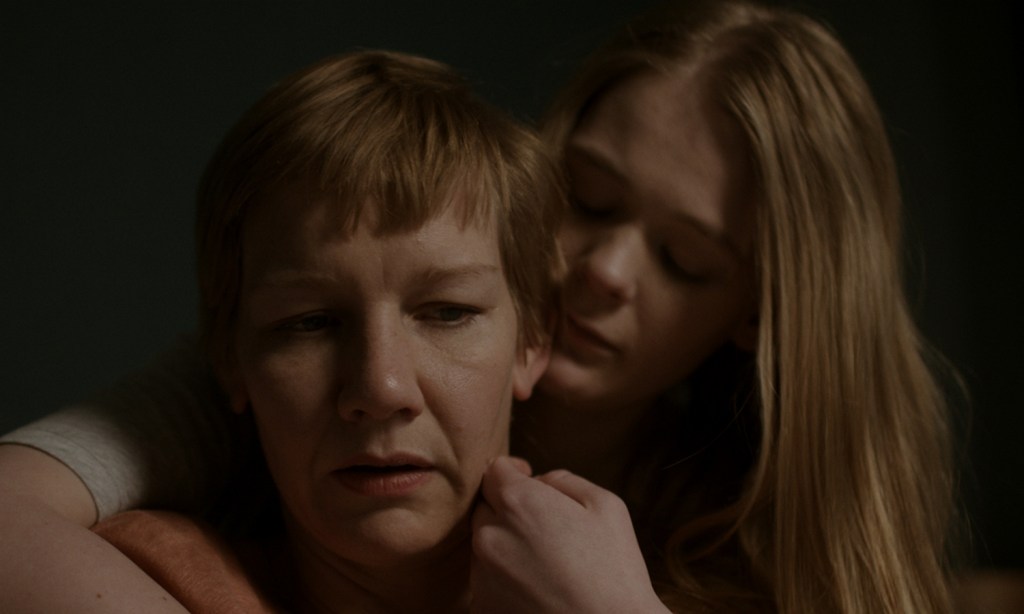
Sleep (Germany)
A woman (Sandra Huller) plagued with mysterious nightmares begins to piece together the visions she’s having, a puzzle that leads her to a secluded hotel in a small, desolate town in the German countryside. Once there, she has a nervous breakdown, landing her in the hospital and leaving her daughter (Gro Swantje Kohlhof) to discover the dark secrets hidden in the hotel and the town.
A feature debut from director Michael Venus, Sleep is assured in its vision and imagery even if it’s derivative of David Lynch and other practitioners of the macabre. The movie moves at a leisurely pace and Venus transitions seamlessly from reality to dream, but there is a sense of ambiguity at the end that leaves one both unsettled and vaguely unsatisfied. (***)
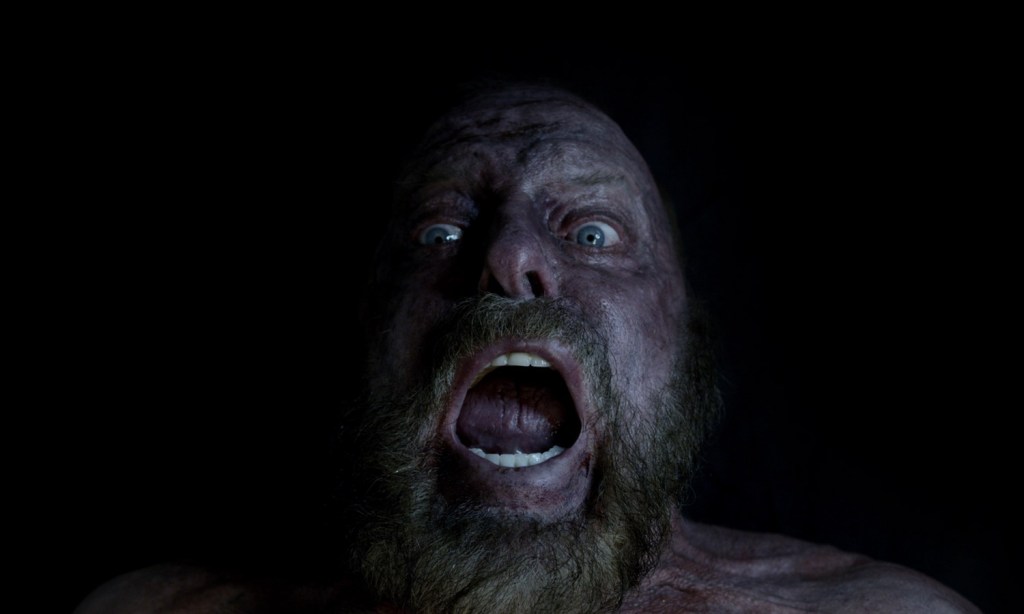
The Block Island Sound (USA)
The Block Island Sound, the new film from Kevin and Matthew McManus (Cobra Kai), would actually make a good pairing with The Dark and the Wicked in that they are both about families besieged by forces beyond their understanding. In this case, the Lynch family, who live on Block Island off the coast of Rhode Island, seem to be the target of an assault from above — an attack that is also doing macabre things to the local wildlife.
As with Bryan Bertino’s film, the family patriarch is the first to succumb, while his marine biologist daughter (Michaela McManus) and troubled son (Chris Sheffield) must contend with the fallout. The Block Island Sound has great cinematography, sound design and music, but is hampered by uneven acting and a somewhat undercooked script that shows its cards early and doesn’t really go anywhere from there. (**½)

Monster Seafood Wars (Japan)
A light, trifling satire of kaiju flicks, Monster Seafood Wars plays off the idea that the Japanese people are accustomed to having their cities leveled by giant monsters on a regular basis. Thus the latest siege by a giant octopus, squid and crab is business as usual, with restaurants even obtaining chunks of “monster meat” and serving it up in gourmet dishes as the latest culinary craze.
The film also pokes fun at youth culture, with the film’s three main scientists not just somewhere in their early 20s but sharing a romantic conflict as well. The movie’s kaiju costumes and green screen effects are deliberately cheesy and you’re meant to relax and have fun, but the movie labors hard to be truly funny and not just an oddity. (**½)
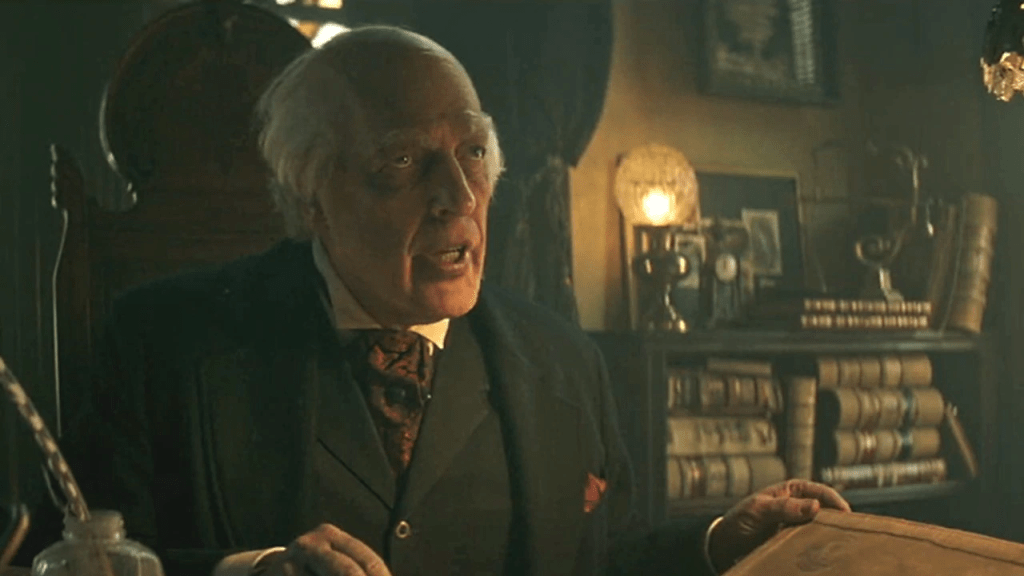
The Mortuary Collection (USA)
“The world is not made of atoms, it is made of stories.” Too bad the stories in this anthology film don’t live up to those opening lines. Writer/director Ryan Spindell clearly loves the old Amicus portmanteau films, Creepshow, Tales from the Crypt and others, but his beautifully shot and handsomely designed tribute rarely comes off as more than a surface homage.
The framing device stars Clancy Brown (The Flash) in heavy prosthetics as a mortician who welcomes a cynical young woman (Caitlin Custer) into his funeral parlor and shares stories about some recent clients. There is some attempt at atmospherics and lots of gore, but the scares are non-existent and the stories just sort of sputter out without the punchy endings often associated with this subgenre. (**½)
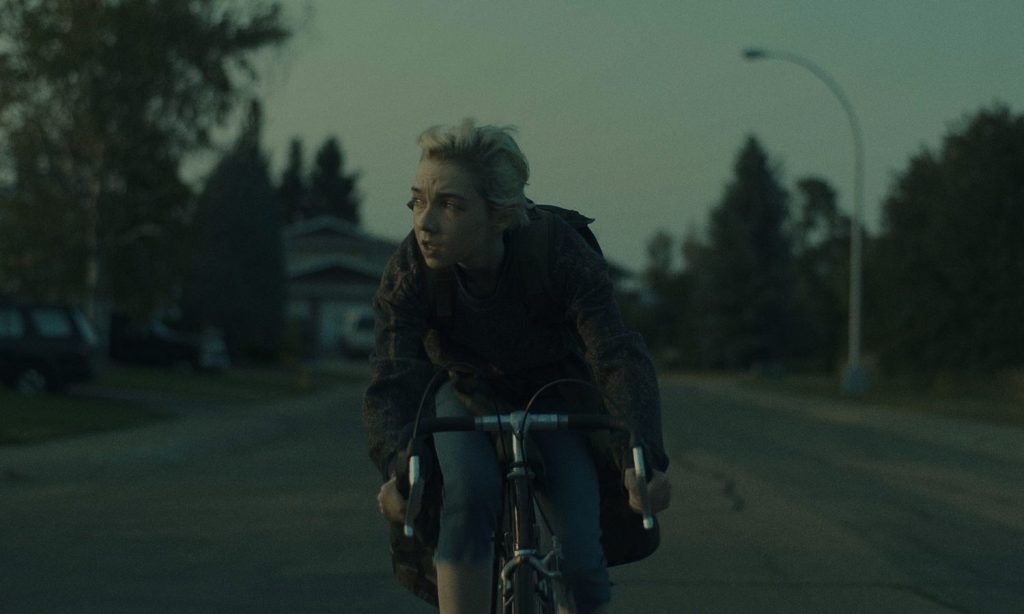
Come True (USA)
For Come True, writer/director/editor/cinematographer Anthony Scott Burns has come up with some truly eerie dream imagery, but the story he built around it is tedious and incoherent. Sarah (Julia Sarah Stone) desperately craves sleep and participates in a dream study that unleashes…what?
The movie never really fleshes out what is happening, while both its script and characters remain maddeningly vague. Throw in a sketchy love story between the very young Sarah and the lead scientist and it gets even creepier in the wrong ways. A misfire all around that sent us quickly into dreamland. (**)
